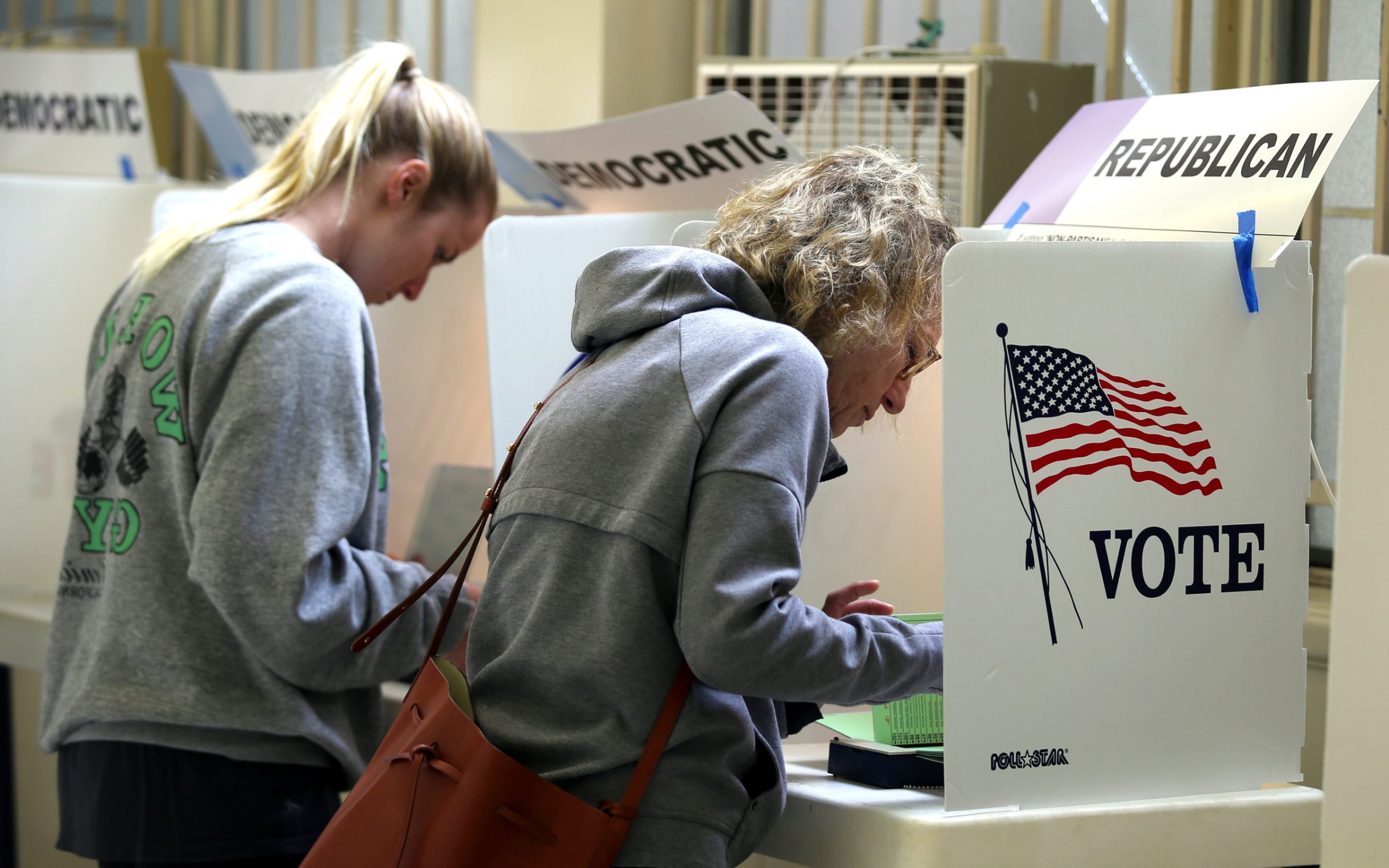
Smith is a professor at the University of New Hampshire and director of the university’s Survey Center
The 2016 presidential race features two unpopular candidates: both Donald Trump and Hillary Clinton have unprecedentedly low favorability ratings for major-party candidates. The possibility that a large percentage of voters will not vote for either candidate may lead to a serious third-party challenger, something not seen since Ross Perot’s 1992 and 1996 runs. This scenario makes the election harder to predict.
The most likely third-party candidates are former New Mexico Governor Gary Johnson, running on the Libertarian ticket, and Jill Stein, from the Green Party.
A recent CNN/ORC poll shows that including these candidates on polls has a negative effect on the main candidates. When the poll asked voters to choose between Trump and Clinton, Clinton held a 47% to 42% lead over Trump, with 4% preferring some other candidate and 6% undecided. Including Johnson and Stein, Clinton slips to 42%, Trump drops to 38%, Johnson gets 9%, Stein gets 7%, 1% prefer some other candidate, and the rest are undecided.
In other words, including third-party candidates made it more likely responders would choose a minor candidate, from 4% to 16%. While there is no doubt that third-party candidates are likely to do better this year than during recent elections, it is doubtful that they will garner 16% of the electorate!
So what’s a pollster to do?
Minor candidates and their supporters often complain that pollsters unfairly exclude them, diminishing their electoral chances. Some candidates have gone so far as suing pollsters for not including them. Democratic principles suggest that they should be included in polls if they qualify for the ballot, just like major party candidates. After all, fair is fair.
Yet pollsters are often hesitant to read the names of third-party or independent candidates, even if they have qualified to be on the ballot. America, for better or worse, is a two-party country, and political science literature has shown, over and over again, that party identification is the most important driver of whom someone votes for. When voters get into the privacy of the voting booth, the fallback position is to vote for candidate of their party, regardless of their feelings toward that candidate. We have a great ability to rationalize why our party’s bad candidate is better than the other party’s bad candidate.
Respondents often hide their support for the unpopular candidate of their party by either saying they are undecided, or that they prefer a third candidate. And this is the biggest concern that pollsters have with adding the names of third-party candidates to poll “horse race” questions—that polls overestimate support for third-party candidate, making final predictions less accurate.
Pollsters are, fairly or unfairly, judged by how close their predictions are to the actual vote and therefore typically try to minimize bias that makes their estimates less accurate. Including the names of third-party candidates does this, as research by Joe Lenski has pointed out, overestimating support by an average of 1.3%. This is especially true earlier in the campaign and lessens the closer you get to Election Day.
But third-party candidates can have an effect on elections. So how do pollsters determine when to include them and when not to?
I spoke with several of my colleagues about this, and while everyone does things somewhat differently, the consensus is to include a candidate if they have a “real” campaign. Do they have significant fundraising, an important indicator of political support? Do they have significant endorsements from either important political figures or well-known people? Do they have sufficient staff to mount a credible campaign? Do voters have any idea who the candidate is?
This is not a perfect compromise, and certainly there are examples of third-party candidates who were unfairly excluded from polls, but it’s the best we can do in the current system.
More Must-Reads from TIME
- Why Trump’s Message Worked on Latino Men
- What Trump’s Win Could Mean for Housing
- The 100 Must-Read Books of 2024
- Sleep Doctors Share the 1 Tip That’s Changed Their Lives
- Column: Let’s Bring Back Romance
- What It’s Like to Have Long COVID As a Kid
- FX’s Say Nothing Is the Must-Watch Political Thriller of 2024
- Merle Bombardieri Is Helping People Make the Baby Decision
Contact us at letters@time.com